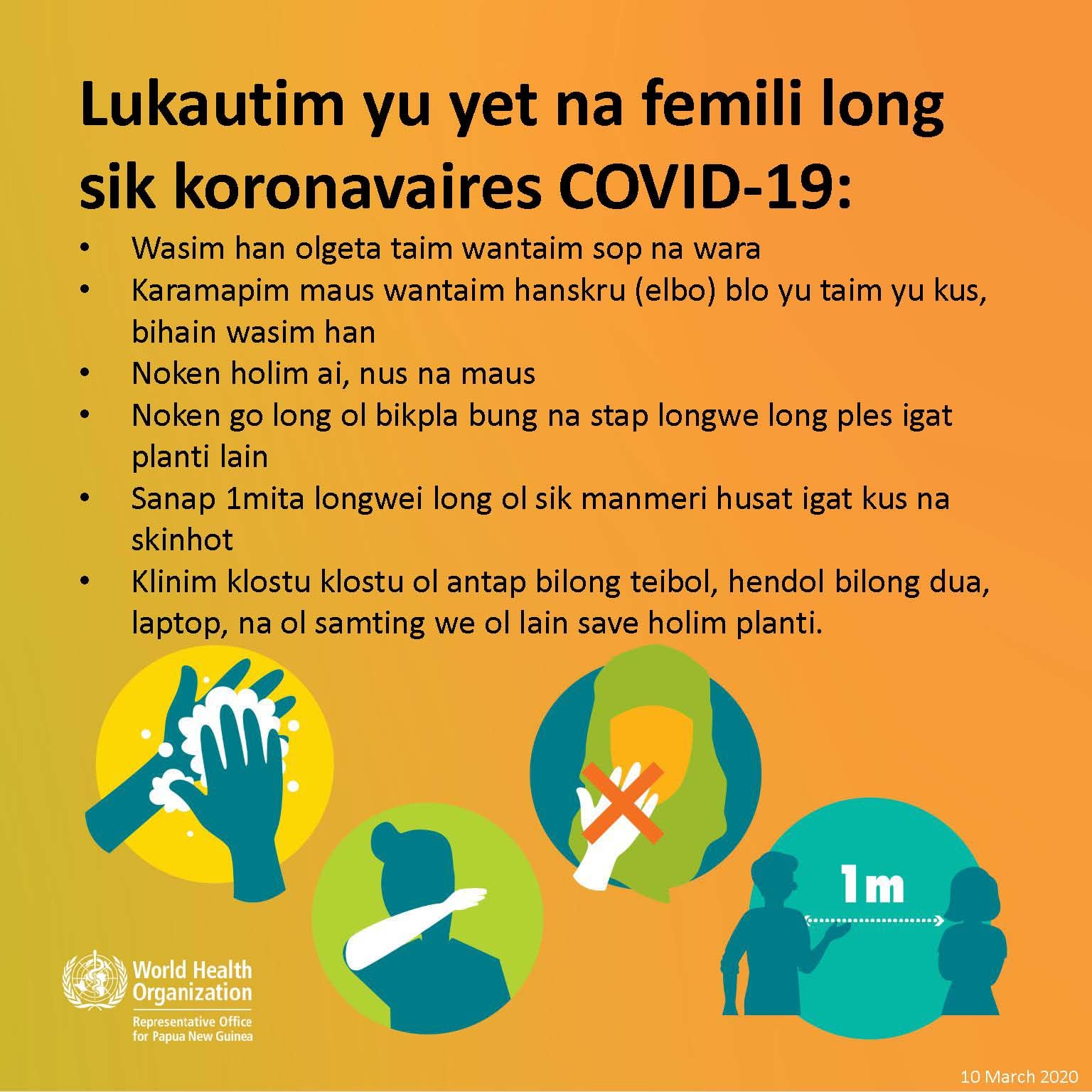COVID-19: Keep calm and stay vigilant
The World Health Organization has said the coronavirus situation in PNG is “rapidly changing”, as the number of cases are rising, so we would like to remind you to keep calm and stay vigilant to stop the spread of the virus.
State of play:
124 cases were reported in February 2021, and the country has recorded 376 new cases between March 1 and 9, according to data from PNG’s COVID-19 National Pandemic Response. As of last week, 50,000 tests had been carried out in the nation since the pandemic began. Port Moresby has been the epicentre of PNG’s outbreak, but there are concerns too with growing case numbers in Western Province, which shares a porous border with West Papua, where infection rates are amongst the highest in Melanesia.
This week Prime Minister James Marape said there was evidence of ?large community transmission? in the National Capital District surrounding the capital Port Moresby, where health workers have been testing positive for the virus. Glen Mola, a senior maternity specialist at Port Moresby General Hospital, said the country’s health workers were being hit particularly hard by the virus.
How it spreads:
The best way to prevent and slow down transmission is be well informed about the COVID-19 virus, the disease it causes and how it spreads. The COVID-19 virus spreads primarily through droplets of saliva or discharge from the nose when an infected person coughs or sneezes. Protect yourself and others from infection by washing your hands or using an alcohol-based rub frequently and not touching your face and practicing respiratory etiquette (for example, by coughing into a flexed elbow).
6 simple precautions to take:
- Clean your hands often
- Cough or sneeze in your bent elbow – not your hands!
- Avoid touching your eyes, nose and mouth
- Limit social gatherings and time spent in crowded places
- Avoid close contact with someone who is sick
- Clean and disinfect frequently touched objects and surfaces
COVID-19 is spread person to person, so be mindful of attending gatherings, marches and congregating with groups of people as it is the easiest way to catch COVID-19.
What happens if I test positive for COVID-19?
Most people infected with the COVID-19 virus will experience a mild to moderate respiratory illness and recover without requiring special treatment. As an example, Bryan Kramer, Minister for Justice in the Marape-Basil Government, tested positive for the virus and described the experience as flu-like, with headaches, fever, dry cough and muscle pains lasting about 4 days. It wasn’t a pleasant experience for him, but for many people like Bryan a mild case of COVID-19 won’t require any hospital treatment. With any flu-like illness the best medicine is rest, to stay hydrated, to take paracetamol for the fever, and keep your immune system strong.
However, it is important if you do test positive, that you isolate. By staying at home, you avoid contact with older people, and those with underlying medical problems like cardiovascular disease, diabetes, chronic respiratory disease, and cancer who are more likely to develop a serious illness if they contract COVID-19.
The reality is there are very real challenges ahead for PNG, but there are efforts in place and people are working very hard to stop the spread of COVID-19, so it’s important to remain calm and follow the WHO’s advice. Remember, it is very easy to contract COVID-19, and although it will likely be a mild case for you, members of your family, community and friends may get seriously ill, so avoid crowded places, wear a mask and hand-sanitise often.

